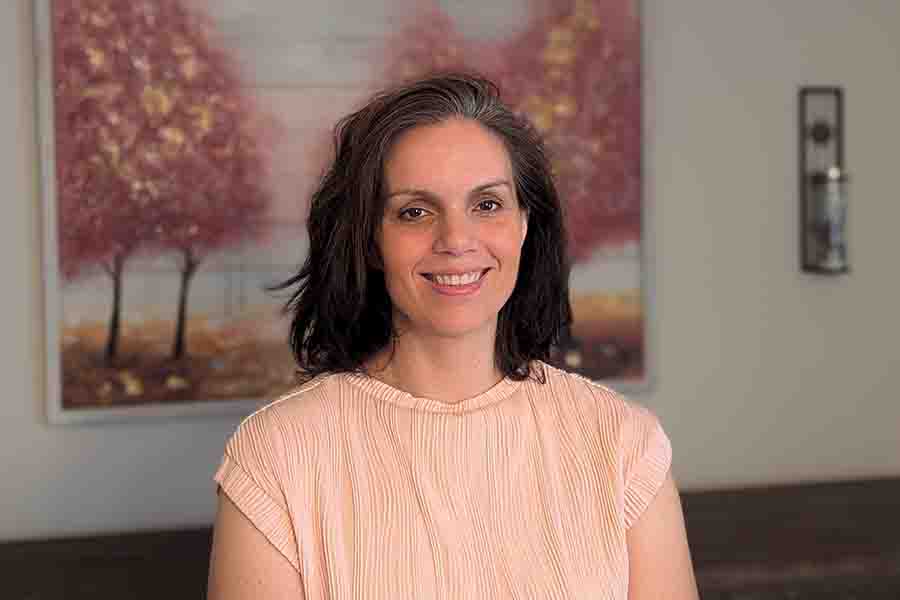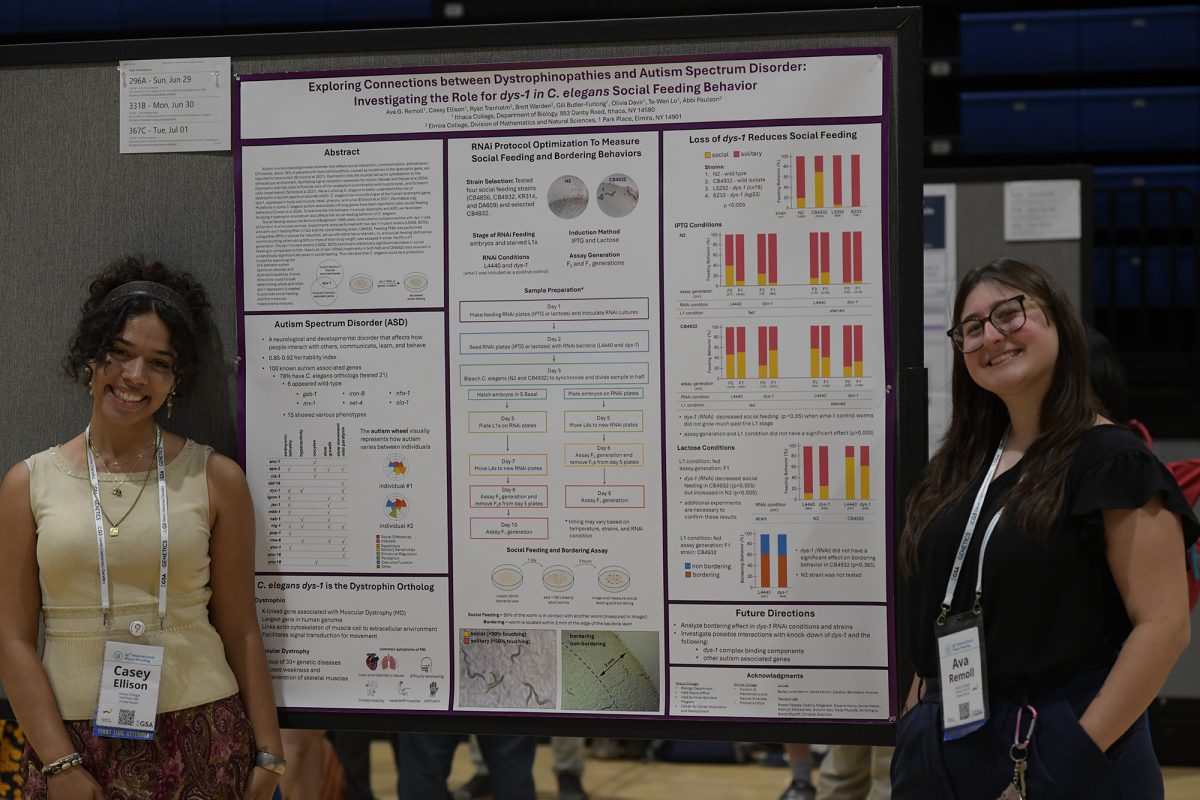Jennifer Muniak, assistant professor of medicine in the Division of Geriatrics and Aging at the University of Rochester, gave a talk titled “One Size Fits None” on Sept. 5. The talk focused on widespread bias that larger-bodied individuals face in long-term care.
The session was organized and brought to an Ithaca College audience by Karen Brown, clinical coordinator for the physician assistant program at Ithaca College, and was sponsored by the Tompkins County Health Planning Council.
Brown has previously organized a quarterly speaker series called “Tough Stuff” in Tompkins County, focusing on issues like health equity and end-of-life complications. Hearing Muniak give the talk at the University of Rochester, Brown said she was shocked at how under-reported the issue was and invited Muniak to give the lecture at Ithaca College.
“I was struck by the fact that we’ve been doing all this work with health equity and I never stopped to think about large-bodied individuals and how that impacts their equity,” Brown said.
During the talk, Muniak explained how in long-term care, most commonly in nursing homes, residents who are obese can quickly run into many obstacles and instances of bullying. Muniak said continued weight shaming can lead to trauma, which is not often talked about in the medical field.
“When bias and stigma occur over the course of years or are pervasive in an individual’s life, this can be a recipe for trauma,” Muniak said. “It’s worthwhile to consider a universal precautions model around trauma in the same way that we do for infectious hazards in the nursing home.”
Muniak said medical centers that face shortages across the board can often find it difficult to accommodate and provide the proper resources for larger-bodied patients, like equipment and more specialized staff.
“A lot of nursing homes just won’t take people who are larger in size,” Muniak said.
Muniak added that this lack of accommodating care can stem from misconceptions about weight gain, ignoring the fact that it is often not the individual’s fault. Many factors besides not eating well or exercising can lead to weight gain, like varying genetics and metabolisms.
“I didn’t understand why we, as a field, who are typically really understanding of diverse populations, didn’t do our best to meet people where they’re at,” Muniak said.
Muniak went on to explain that deprivation of understanding about this can lead to an overall lack of empathy toward larger-bodied residents. This can subsequently result in frustration from staff, which can lead to weight shaming of residents. Muniak said weight bias and stigma can have a detrimental effect on mental and physical health, including further weight gain.
Muniak said the key to reforming many of these flaws in the medical system can come down to enacting individualized or person-centered care. Person-centered care refers to treatment that involves the individual and accommodates for their specific circumstances.
Brown said a lack of person-centered care only fosters more biases and assumptions.
“What if a patient lives in a dangerous community that has high crime rates and it’s not safe to walk, or if they can’t afford to get a gym membership?” Brown said. “There’s so many things that can be an obstacle or barrier.”
Elizabeth Bergman, associate professor in the Department of Health Sciences at Ithaca College, attended the talk and said she has seen the issues talked about by Muniak firsthand.
“I’ve talked to residents of long-term care facilities and other healthcare-related spaces, where they have shared with me the impact of ways that they’ve been treated based on the size of their body,” Bergman said.
Bergman said the session made her think about how having multiple stigmatized identities can add to the poor quality of treatment that is normalized within the healthcare system.
“It caused me to think about the intersections between body size and age and the stigma that both of those carry, and the ways in which those things can both intersect with one another and be cumulative over the life course,” Bergman said.
Bergman said that the department is making an effort to make students aware of potential biases like these, and that she encouraged her students to attend the discussion and write on it reflectively for extra credit.
“One of our core values as a department is to train and encourage students to think about sources of human difference and how they impact our experiences within the healthcare system,” Bergman said.
Bergman said she is planning on helping students avoid this sort of stigma and other forms of bias in the medical field by integrating this issue into courses as well.
Muniak said a step toward recognizing and working on biases is to be understanding.
“This is really one of the last remaining forms of discrimination that’s socially acceptable,” Muniak said. “But what’s important is starting with awareness and empathy.”















